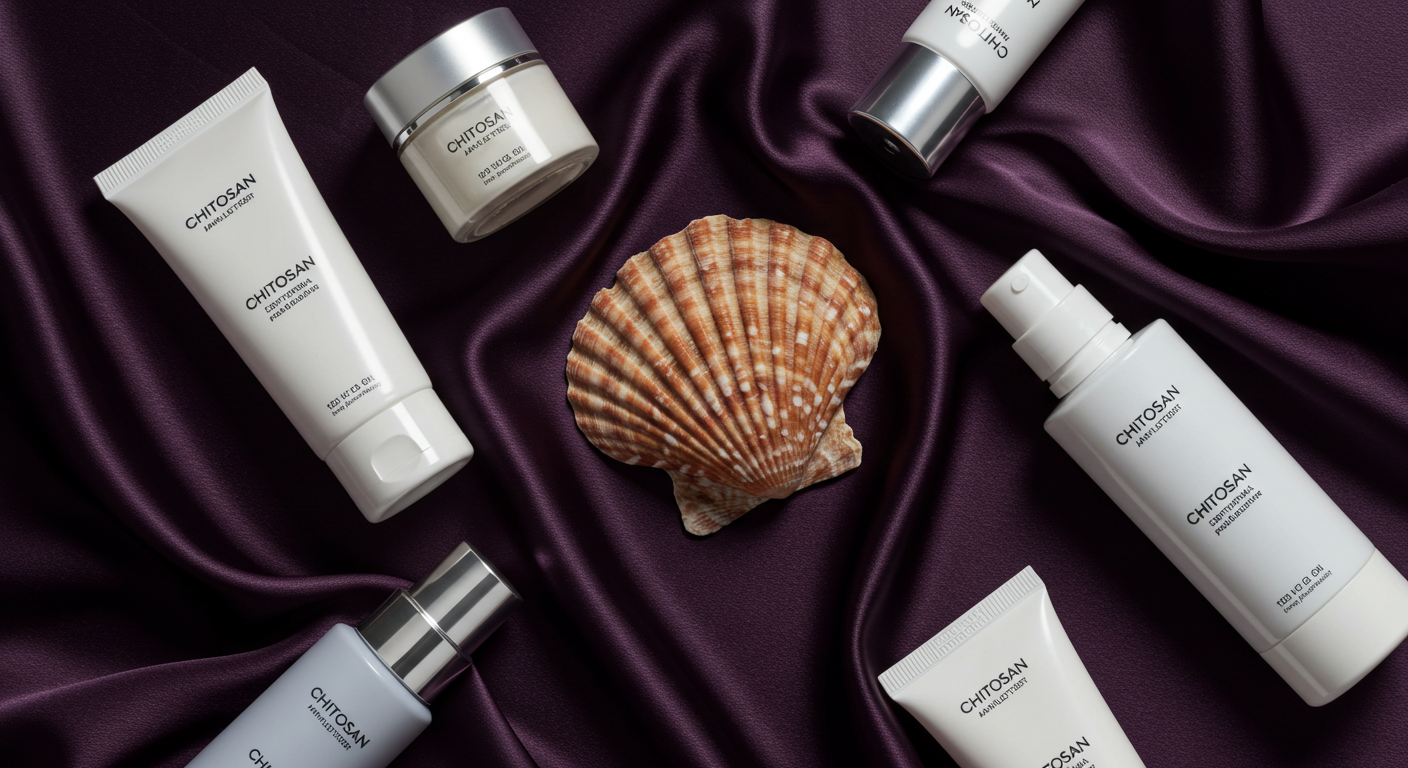We've all been there. You have a big event coming up, you look in the mirror, and there it is—a new, angry-looking pimple that seems to have appeared out of nowhere. The frustration is real! For years, many of us have fought the acne battle with a cabinet full of harsh chemicals. But what if the secret to calmer, clearer skin came from the sea? Let's talk about an amazing ingredient called chitosan. 😊
What is Chitosan and Why Is It Good for Acne? 🤔
You might not have heard of it, but chitosan is a superstar natural polymer. It's derived from chitin, a substance found in the shells of crustaceans like shrimp and crabs. Think of it as a gift from the ocean! What makes it so special for acne-prone skin are its incredible properties. It's biocompatible, meaning our skin welcomes it without issues.
One of its main powers is its antimicrobial capability. Acne is often caused by bacteria, specifically Propionibacterium acnes (P. acnes). Studies have shown that chitosan has a potent antibacterial effect against these acne-related bacteria. It works by disrupting the bacterial cell membrane, which helps stop breakouts before they even start.
Beyond just fighting bacteria, chitosan is a fantastic anti-inflammatory agent. This means it can help calm the redness, swelling, and general irritation that comes with acne, making your skin look and feel much calmer.
The Healing and Protective Powers of Chitosan 🛡️
Dealing with a breakout is one thing, but the aftermath—scars and dark spots—is another battle entirely. This is where chitosan truly shines. It is well-known for its incredible wound-healing properties. It helps by promoting tissue regeneration and encouraging your skin to repair itself more efficiently.
Here’s a breakdown of how it helps your skin bounce back:
| Benefit | How it Works |
|---|---|
| Moisture Retention | Chitosan forms a breathable film on the skin that locks in moisture, keeping it hydrated and plump. This is crucial for healing. |
| Scar Reduction | By supporting smoother healing and promoting cell renewal, it can help reduce the appearance of post-acne scars and marks. |
| Barrier Protection | The protective film shields your skin from environmental pollutants and irritants that could worsen inflammation. |
| Collagen Stimulation | Some research suggests chitosan can encourage collagen production, which is vital for skin firmness and elasticity. |
Unlike some harsh anti-acne ingredients that can strip the skin, chitosan is known for being gentle and soothing. Its low toxicity and biodegradable nature make it an excellent choice for sensitive skin and eco-friendly personal care.
How to Incorporate Chitosan into Your Routine ✨
Ready to give this marine marvel a try? Chitosan is becoming more popular in a variety of skincare products. You can find it in:
- Soothing Gels & Creams: Perfect for calming down red, irritated breakouts.
- Sheet Masks: Often used in hydrogel or bio-cellulose masks for an intense dose of hydration and healing.
- Serums & Treatments: Targeted formulations can deliver chitosan's benefits deep into the skin to help with scarring and inflammation.
- Wound Dressings: In a medical context, it's used in dressings to speed up healing, showcasing its powerful restorative abilities.
When looking for products, check the ingredient list for "chitosan." It's often paired with other skin-loving ingredients like hyaluronic acid or alginate for even better results.
Chitosan for Acne: Key Takeaways
Frequently Asked Questions ❓
Finding the right ingredients for your skin is a journey, but discovering gentle yet powerful options like chitosan makes it all worthwhile. Give your skin the soothing, healing care it deserves! Have you tried any products with chitosan before? Share your experience in the comments below! 😊



